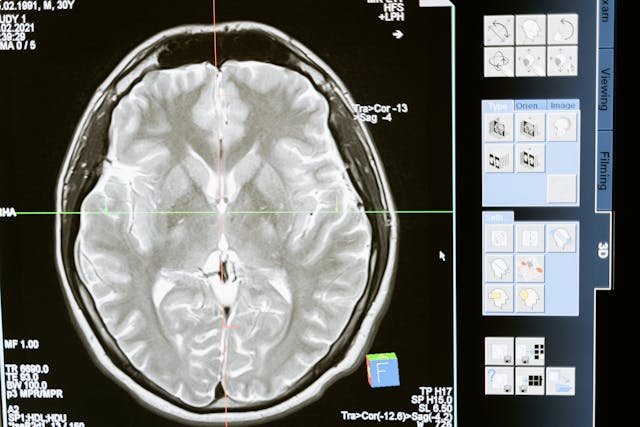Anaemia is a general term for a category of blood conditions that affect the red blood cells or the oxygen-carrying haemoglobin they contain.
In anaemia, there is either a reduction in the number of red blood cells in circulation or a decrease in the amount or quality of haemoglobin. There are many causes of anaemia, including severe blood loss, genetic disorders, and serious diseases. (See iron deficiency anaemia, pernicious anaemia [vitamin B12-related], and sickle cell anaemia.) Anyone with unexplained anaemia should have the cause determined by a qualified doctor.
Some athletes appear to have anaemia when their blood is tested, but this may be a normal adaptation to the stress of exercise, which does not need treatment. Further evaluation by a qualified doctor is necessary.
What are the symptoms of anaemia?
Some common symptoms of anaemia include fatigue, lethargy, weakness, poor concentration, and frequent colds. A peculiar symptom of iron-deficiency anaemia, called pica, is the desire to eat unusual things, such as ice, clay, cardboard, paint, or starch.
Advanced anaemia may also result in light-headedness, headaches, ringing in the ears (tinnitus), irritability, pale skin, unpleasant sensations in the legs with an uncontrollable urge to move them, and getting out of breath easily.
Dietary changes that may be helpful.
Severe protein deficiency can cause anaemia because protein is required for normal production of haemoglobin and red blood cells. However, this deficiency is uncommon in healthy people living in developed countries.
Thalassemia is an inherited type of anaemia that is most common in people of Mediterranean descent. Children with severe thalassemia often have reduced growth rates that may be partially due to inadequate diets. This problem is primarily found in developing countries.
Nutritional supplements that may be helpful.
Deficiencies of iron, vitamin B12, and folic acid are the most common nutritional causes of anaemia. Although rare, severe deficiencies of several other vitamins and minerals, including vitamin A, vitamin B2, vitamin B6, vitamin C, and copper, can also cause anaemia by various mechanisms. Rare genetic disorders can cause anaemia’s that may improve with large amounts of supplements such as vitamin B1.
Taurine has been shown, in a double-blind study, to improve the response to iron therapy in young women with iron-deficiency anaemia. The amount of taurine used was 1,000 mg per day for 20 weeks, given in addition to iron therapy, but at a different time of the day. The mechanism by which taurine improves iron utilization is not known.
Hemolytic anaemia refers to a category of anaemia in which red blood cells become fragile and undergo premature death. Vitamin E deficiency, though quite rare, can cause hemolytic anaemia because vitamin E protects the red blood cell membrane from oxidative damage. Vitamin E deficiency anaemia usually affects only premature infants and children with cystic fibrosis.
Preliminary studies have reported that large amounts (typically 800 IU per day) of vitamin E improve hemolytic anaemia caused by a genetic deficiency of the enzyme glucose-6-phosphate dehydrogenase (G6PD) and anaemia caused by kidney dialysis.
People with severe thalassemia who receive regular blood transfusions become overloaded with iron, which increases damaging free radical activity and lowers antioxidant levels in their bodies. Some people with milder forms of thalassemia may also have iron overload. Iron supplements should be avoided by people with thalassemia unless iron deficiency is diagnosed.
Preliminary studies have found that oral supplements of 200 to 600 IU per day of vitamin E reduce free radical damage to red blood cells in thalassemia patients. However, only injections of vitamin E have reduced the need for blood transfusions caused by thalassemia.
Test tube studies have shown that propionyl-L-carnitine (a form of L-Carnitine) protects red blood cells of people with thalassemia against free radical damage. In a preliminary study, children with beta thalassemia major who took 100 mg of L-Carnitine per 2.2 pounds of body weight per day for three months had a significantly decreased need for blood transfusions.
Some studies have found people with thalassemia to be frequently deficient in folic acid, vitamin B12, and zinc. Researchers have reported improved growth rates in zinc-deficient thalassemic children who were given zinc supplements of 22.5 to 90 mg per day, depending on age.
Magnesium has been reported to be low in thalassemia patients in some, but not all, studies. A small, preliminary study reported that oral supplements of magnesium, 7.2 mg per 2.2 pounds of body weight per day, improved some red blood cell abnormalities in thalassemia patients.
Sideroblastic anaemia refers to a category of anaemia featuring a build-up of iron-containing immature red blood cells (sideroblasts). One type of sideroblastic anaemia is due to a genetic defect in an enzyme that uses vitamin B6 as a cofactor. Vitamin B6 supplements of 50 to 200 mg per day partially correct the anaemia, but must be taken for life.
Photo by digitale.de on Unsplash




